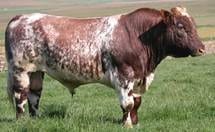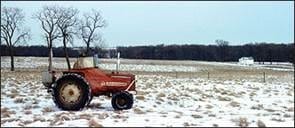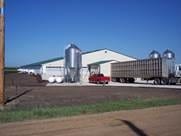Hello,
March 21 is here and spring has sprung, or has it? The early morning snow had me wondering but it didn’t take long for it to turn into a nice day. Driving to Mt. Victory this morning for a meeting, I had the opportunity to reflect on everything that has happened in the past few months. Although I expected things to slow down some in the winter, I quickly learned that this is a very busy time in Extension with all of the meetings and events. I have also learned that bad weather will not usually keep many farmers away from attending meetings. In fact, sometimes bad weather works out good because not much else can be done on those types of days. National Ag Day is coming up March 25, which is a part of National Agriculture Week which runs from March 23-29. The Kenton FFA is celebrating this week with a Community Ag Breakfast on Wednesday morning, March 26 serving from 7:00-9:00 am in the high school cafeteria. See the attached news release and make sure you listen for several agricultural and community leaders doing radio spots throughout the week.
Next Saturday, March 29 will be the Hardin County Pork Banquet. This banquet will be at St. John’s United Church of Christ in Kenton and will begin at 6:30 pm. I continue to be impressed with the turn-out at the agriculture banquets with the quality of the programs, the amount of people who attend, the sponsors who support them, and of course, the great food! The Master Gardeners will be having their monthly meeting March 24 at 7:00 pm at Harco Industries and their third library program will be held March 26 at 6:30 pm at the Mary Lou Johnson Library in Kenton. The program will feature Master Gardener Volunteers Judy Dorsey, Sandy Pruden and Laura Bopp doing a presentation on “Selecting, Planting and Caring for Annuals and Perennials.” The first program on honeybees that was cancelled because of snow and ice has been rescheduled for Wednesday, April 2 at 6:30 pm.
Have you sent in your spring cheese sale order to the Hardin County Dairy Service Unit yet? Funds raised from this semi-annual sale are used for dairy youth scholarships, royalty, awards, and other activities. See the attached news release and order form if you are interested. While I am speaking about dairy, did you hear the great news about Nate and Amanda Cromer? Sieg Dairy Farm was selected as the Member of Distinction award recipient at this week’s Dairy Farmers of America annual meeting held in Kansas City. They were the Mid-East region winner, recognized for their service to their dairy, their families, communities and the industry. Check out the following video about the Sieg Dairy Farm at http://www.youtube.com/watch?v=fm0S-I6AwaY&list=UUy9Gm1jFYDAqUcP1dI2_-iA.
Spring Cheese Sale News Release
This coming week will be the Corn Check-off vote. Voting will take place March 24-26. The referendum is to increase Ohio’s Corn Check-off from ½ cent to ¾ cent per bushel. Voting will take place at all county offices of The Ohio State University Extension between the hours of 9:00 am and 4:00 pm and at the Ohio Department of Agriculture, 8995 East Main Street, Reynoldsburg, Ohio 43068 between the hours of 8:00 am and 5:00 pm. You can also vote at the Ohio Corn and Wheat Marketing office, 59 Greif Parkway, Delaware, Ohio 43015 between 8:00 am and 4:30 pm. For more information, see the attached flier about who is eligible to vote. Finally, if you are doing your taxes and need copies of the Farmer’s Tax Guide, we have them available in our office. I have delivered several copies to banks and ag lenders around the county, so you may have picked up one there. Below are some articles and other information that you find interesting.
Ohio Corn Checkoff 2014 Voting Eligibility Info
Mark
Ohio Sheep and Goat Webinars Online – Did you miss one or more of the sheep and goat webinars that were held this past February at the Extension office? If so, you can now view them online by visiting the Ohio Sheep Improvement Association website at ohiosheep.org. There are four webinars lasting about one and half hours each on different topics of interest to producers. Topics included information on lambing/kidding, forages for small ruminants, selecting the proper breed for your market, and record management systems.
Corn Flea Beetle and Stewart’s Leaf Blight Prediction – Ron Hammond, Andy Michel, Pierce Paul, Peter Thomison
Being March, it is time to put out the annual corn flea beetle and Stewart’s leaf blight prediction based on the average temperatures the past three months (Dec, Jan, and Feb.). Stewart’s bacterial disease is dependent on the level of bacteria-carrying flea beetle survival over the winter. Because higher populations of the flea beetle survive during mild winters than during cold winters, winter temperatures have been used to predict the risk of Stewart’s disease. Compared to recent years, and even the past few decades, the past three months have definitely been on the cold side. To find out more, go to http://corn.osu.edu/newsletters/2014/2014-6/corn-flea-beetle-and-stewarts-leaf-blight-prediction.
Frost Seeding to Improve Pasture Quality – Rory Lewandowski
At this point in March one has to hope that spring really is just around the corner. One task that is well suited to the transition time between winter and spring is frost seeding. Frost seeding involves broadcasting seed over a pasture area and letting the natural freeze/thaw cycles of late winter and early spring help to move the seed into good contact with the soil. A basic requirement for frost seeding success is exposed soil. When looking down into the sod you should be able to see down to the soil. The broadcast seed must be able to come into contact with the soil. Frost seeding will fail when there is too much forage residual cover and the seed gets hung up in that residual. Generally, a pasture is prepared for frost seeding by grazing it down hard, although some light tillage or a close mowing typically done in the late fall could also be used. To continue reading this article, go to http://corn.osu.edu/newsletters/2014/2014-6/frost-seeding-to-improve-pasture-quality.
Pork Industry Launches Three-Prong Strategy to Stem PEDV Spread Cindy Cunningham, National Pork Board, Des Moines, Iowa
New funding, research and collaboration will focus on mitigating loss and impact to pork supply. The National Pork Board has announced additional funds earmarked for research in the fight against the further spread of Porcine Epidemic Diarrhea Virus (PEDV), which was first identified in the United States last May. The funds – $650,000 through supplemental funding approved by the Pork Checkoff at last week’s Board meeting and $500,000 through a new agreement with Genome Alberta, will provide new opportunities for research. Go to http://www.pork.org/News/4575/PorkIndustryLaunchesThreeProngStrategytoStemPEDVSpread.aspx?utm_source=PEDV_Update&utm_medium=email&utm_content=news_release&utm_campaign=Vol_2_No_5 to finish reading this article.
 A Breeding Soundness Exam: Insurance for Your Breeding Season – Dr. Les Anderson, Beef Extension Specialist, University of Kentucky
A Breeding Soundness Exam: Insurance for Your Breeding Season – Dr. Les Anderson, Beef Extension Specialist, University of Kentucky
I received the call on a Monday. I seem to receive this call 6-8 times each year. This particular rancher had just finished getting his cows diagnosed for pregnancy. He had 43 fall calving cows. The previous fall, those cows were synchronized for artificial insemination and were exposed to one bull for about 5 weeks and a second bull for 7 weeks. Only 22 cows conceived and all of them conceived to the AI. The first question I asked this rancher was the obvious one; did you get a breeding soundness exam (BSE) performed on your bulls? His response; the bulls had one when he bought them but he had not had one done since (2-3 years). The bulls were checked and, sure enough, both were infertile. Go to http://beef.osu.edu/beef/beefMar1914.html to continue reading this article and other beef articles.
Mark A. Badertscher
Agriculture and Natural Resources Educator
OSU Extension Hardin County
1021 W. Lima Street, Suite 103, Kenton, OH 43326
419-674-2297 Office



